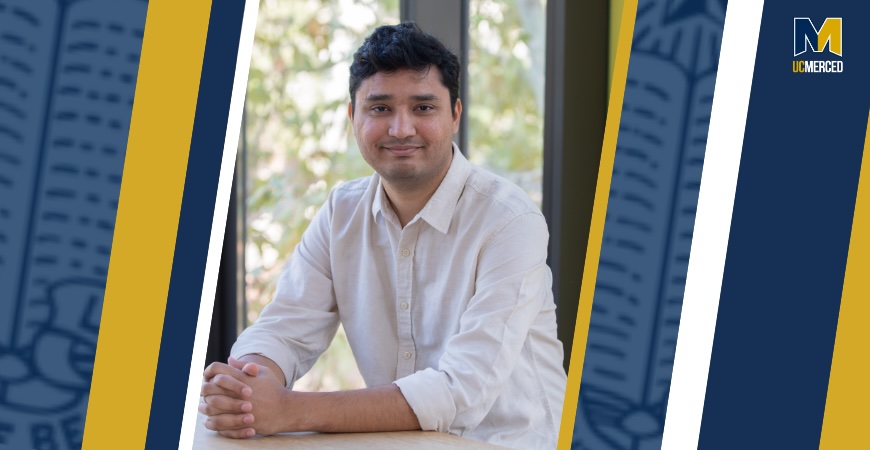
Air traffic controllers sort out three-dimensional space at 600 miles per hour while keeping your flights safe and on time. But as challenges in air traffic increase, the Center for Information Technology Research in the Interest of Society and the Banatao Institute (CITRIS) envisions that big data techniques such as artificial intelligence, or AI, can help.
Ayush Pandey, an assistant teaching professor of electrical engineering at UC Merced, received a 2023 CITRIS Seed Award for his project focused on safety guarantees in generative AI models for air traffic control. With an average of more than 45,000 flights in and out of the U.S. every day, managed by over 14,000 Federal Aviation Administration (FAA) air traffic controllers, the need for innovative solutions is clear.
AI can assist in other careers, even coding and art, but how can it help with air traffic, in a field where a single malfunction can have catastrophic consequences?
With this seed funding, Pandey, lead principal investigator on the project, and Gireeja Ranade, assistant teaching professor of electrical engineering and computer sciences at UC Berkeley , aim to enhance the efficiency of air traffic control using generative AI. This safety service involves an interplay of voice communication, radar data, meteorological data and flight plans.
"Although AI models are great at enhancing system performance, there are hardly any safety or performance guarantees on what to expect in new situations," said Pandey.
Envisioning the widespread use of generative AI systems such as ChatGPT, he acknowledged associated risks, emphasizing the susceptibility of these models to "hallucinations" and attacks by malicious actors. Pandey's research aims to address these concerns.
In the context of AI, a "hallucination" refers to a situation where a machine learning model generates outputs that are not based on real or existing patterns in the data it has been trained on. In other words, the model produces information or predictions that are not reality.
"The aviation industry can greatly benefit from AI applications, but safety and public trust in AI-based technologies is a major concern," said Pandey. "In the context of air-traffic control, a safe application of AI models can augment human decision-making by providing real-time, data-driven insights, reducing the cognitive load on air traffic controllers and potentially minimizing human error."
Through experimental approaches, the research project will parameterize safety guarantees against worst-case disturbances and explore trade-offs between guarantees and system performance in suboptimal scenarios. The researchers plan to apply techniques such as control barrier functions to build safety guarantees and demonstrate metrics using pre-trained models and aviation datasets. They anticipate presenting preliminary results at conferences by this fall.
Though air traffic is the first topic area, Pandey's work could apply to all kinds of safety-critical systems, including self-driving cars, robotics, emergency support systems and healthcare. AI -and potential bad actors and hallucinations - can be everywhere but anticipating them is a service to society and one that may improve public opinion of AI generally.
"Our findings will hopefully pave the way toward an engineering framework that can provide safe application of these AI models," he said.
In line with CITRIS' multicampus approach to research, the six awarded projects bring together teams from Berkeley, Davis, Santa Cruz and Merced to serve in the interest of society. Awards were up to $60,000 with support from external philanthropy and are designed to jumpstart collaborations and initial results.
These winning projects aim to tackle challenges in different sectors, such as climate resilience, sustainability, digital health, and semiconductors and systems, utilizing information technology.
"Dr. Pandey's groundbreaking work will help advance the safety of air traffic control through generative AI models. The innovations showcase the transformative impact these projects will have on the future of technology and society," said Professor Erin Hestir, director of CITRIS and the Banatao Institute, UC Merced .



